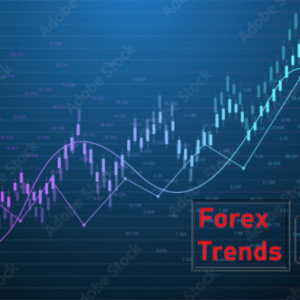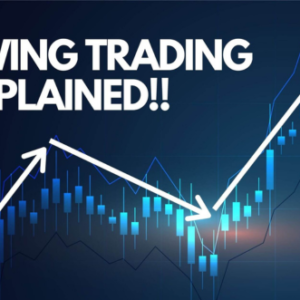Trading in the financial markets requires a combination of skill, knowledge, and discipline. While experience plays a critical role, building a solid foundation through reading is essential. Many successful traders have turned to books for guidance, and there are numerous classic and modern texts that can help sharpen your trading strategies. In this article, we’ll explore some of the best trading books that every investor, from beginner to expert, should read.

1. “A Random Walk Down Wall Street” by Burton G. Malkiel
This classic book has been a staple for investors since its first publication in 1973. Malkiel introduces the concept of the efficient market hypothesis, suggesting that stock prices are largely unpredictable. While the book covers various investment strategies, it primarily advocates for long-term, passive investing through diversified portfolios.
Why It’s Great:
- Explains complex investment concepts in a simple manner.
- Ideal for both new investors and seasoned professionals.
- Offers timeless advice on index funds and portfolio management.
2. “Reminiscences of a Stock Operator” by Edwin Lefèvre
If you’re interested in a more narrative-driven account of trading, this semi-autobiographical book about Jesse Livermore is a must-read. Livermore was one of the greatest traders of the early 20th century, and this book offers invaluable lessons on market speculation, psychology, and strategy.
Why It’s Great:
- Provides historical insight into the world of stock trading.
- Highlights the psychological aspects of trading.
- Packed with timeless lessons on speculation and risk-taking.
3. “The Intelligent Investor” by Benjamin Graham
Often referred to as the “bible of value investing,” this book was first published in 1949 and is still widely regarded as one of the best books on investing. Graham’s philosophy focuses on long-term, low-risk investing, providing guidelines for investors to make informed decisions by analyzing a company’s fundamentals.
Why It’s Great:
- Offers a deep dive into value investing principles.
- A must-read for those who want to minimize risk and make informed decisions.
- Warren Buffett considers this book one of his major influences.
4. “Market Wizards” by Jack D. Schwager
“Market Wizards” offers a unique take on trading by featuring interviews with some of the most successful traders of all time. Schwager dives into the minds of these legendary figures, exploring their strategies, philosophies, and personal stories. This book is packed with wisdom from traders who have consistently outperformed the markets.
Why It’s Great:
- Provides real-world insights from top traders.
- Offers multiple trading perspectives across different markets.
- Great for those seeking inspiration and diverse trading strategies.
5. “Trading for a Living” by Dr. Alexander Elder
Dr. Alexander Elder’s “Trading for a Living” is a comprehensive guide that covers the mental, analytical, and practical aspects of trading. Elder, a psychologist turned trader, emphasizes the importance of managing emotions, risk, and money. The book provides readers with practical strategies and techniques for analyzing markets, all while focusing on the psychological side of trading.
Why It’s Great:
- Balances technical analysis with psychological insights.
- Offers practical techniques for managing money and risk.
- Suitable for traders at any level of experience.
6. “Flash Boys” by Michael Lewis
For those intrigued by the world of high-frequency trading (HFT), “Flash Boys” is a gripping account of how a group of Wall Street insiders manipulated stock markets using high-speed computers. Michael Lewis tells a true story that reveals the dark side of HFT and how it has affected markets and ordinary investors.
Why It’s Great:
- An eye-opening look into the world of high-frequency trading.
- Highlights the ethical challenges of modern trading.
- Written in an engaging, easy-to-read style that feels like a thriller.
7. “The Little Book of Common Sense Investing” by John C. Bogle
John Bogle, the founder of Vanguard and the father of index funds, wrote this guide as an accessible introduction to passive investing. Bogle advocates for low-cost, diversified index fund investing as the most reliable way to achieve long-term success in the stock market.
Why It’s Great:
- Ideal for long-term, passive investors.
- Simple and straightforward advice on low-cost investing.
- A great resource for those looking to build wealth over time.
8. “The Disciplined Trader” by Mark Douglas
Trading requires more than just understanding charts and market trends—it also requires psychological discipline. Mark Douglas’ “The Disciplined Trader” is one of the most insightful books on mastering the mental game of trading. It teaches readers how to manage fear, handle losses, and develop the mindset needed for consistent success.
Why It’s Great:
- Focuses on the psychological side of trading.
- Offers practical advice on developing emotional discipline.
- Beneficial for traders looking to improve their mental toughness.
Conclusion
Whether you are a beginner just getting started or a seasoned trader looking to refine your strategy, the books listed above offer invaluable knowledge and insights. From timeless investment strategies outlined in “The Intelligent Investor” to the psychological lessons of “The Disciplined Trader,” these books cover every aspect of trading, from emotional discipline to advanced technical analysis.
Reading these books will not only enhance your understanding of financial markets but also equip you with the tools and strategies to succeed as a trader or investor. Keep expanding your knowledge, because in the ever-evolving world of trading, staying informed is key to staying ahead.













